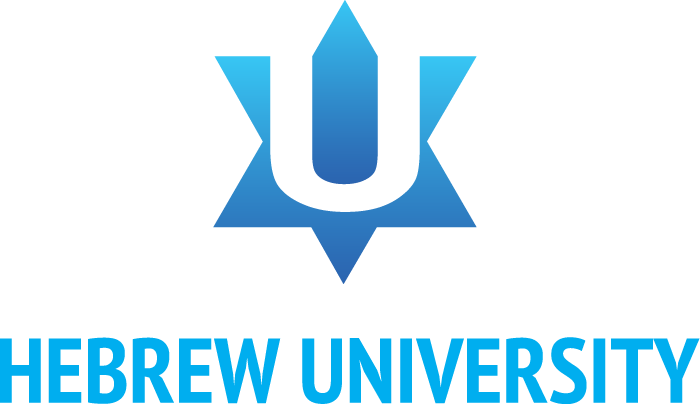
The conceptualization of nursing is based on a body of knowledge that is particular to the art and science of nursing. The framework is premised on significant concepts observed in the philosophy of Spartan Health Sciences in Nursing programs. The structure stipulates the Knowledge required in nursing, the know-how and the nursing actions that a student needs to become a fully licensed professional nurse. In organizing the significant concepts and sub-concepts, the learners apply the knowledge on Bloom’s Taxonomy of cognitive, affective and psychomotor because of the nature of the practice in nursing and education. Both students and nurses use cognitive skills in comprehending and synthesizing the concepts of every person like patient, family and community. It enables the learners to internalize the roles of nursing in providing the care needed in nursing with the help of the other members of the health faculty.
The program expects the learners and the practicing nurses to be able tosynthesize theories and concepts from the arts and humanities and the natural and social sciences in the practice of their professions. The learners are also expected to apply critical thinking during the making of a decision and clinical reasoning skills in providing nursing care that is of high standards to individuals, family groups and other members of the community. Besides, the learners should translate research findings to provide evidence that is based on the practice of nursing. The program outcome requires the individual who is aspiring to be a professional nurse to manage information and technology to deliver a high standard of care to the patient in different settings. The nurse should also be able to use leadership skills and knowledge of the healthcare and other regulatory systems to ensure a quality and safe practice in the profession. On the other hand, one should demonstrate evolving competence in a professional role within a dynamic, multicultural, global society.
The main course introduces students to the field of nursing. It majors on the history of nursing and the essential skills that are required in this field. Critical thinking, cultural variation and decision-making are some of the major areas addressed. Students study different healthcare systems, the legal and ethical aspects of nursing and economic factors that affect healthcare and the nursing field. A lot of stress is placed on understanding the common elements in different diseases and how to address each using specific approaches. Students also come to an understanding of the relationship between diseases and symptoms that may help them in diagnosing the problem. These include pharmacology, pathophysiology and health assessment.
The Master of Science in Nursing is designed to prepare nurses for advanced clinical practice in the delivery of acute and chronic care to individuals and families throughout the lifespan and across the health continuum. This concentration also focuses on acquisition of evidence-based practice knowledge necessary to provide clinical care that includes health promotion, disease prevention, health education, and counseling in primary care settings.
The Family Nurse Practitioner Concentration FNP concentration can be completed in a-six semester online format. Graduates are required to take the Family Nurse Practitioner Board Certification Examination in order to be licensed and to work as a Family Nurse Practitioner. At least 500 practicum hours are required for graduation.
Career & Outcomes

The kind of work that nurses do and the settings where they perform them depends on the specialty, education and the experiences they have in the areas of practice. Most of the nurses work in health facilities such as hospitals, private clinics, placement agencies, prisons and military bases among others. Nurses that have associate degrees often provide hands-on care while those with more experience and graduate degrees offer the supervisory roles to other nurses or teaching nursing or doing other researches related to the field of nursing. Many nurses spend long hours on their feet. Although nurses working in physicians’ offices, schools, corporate settings or other places with traditional hours may work regular shifts with set schedules, those working in nursing facilities and hospitals providing round-the-clock care often have to work long weekend and holiday shifts. It is normal to find some nurses working for about 10 to 12 hours a day, three to four days each week.
Program Outline:
3 Credits
Course Description:
Advanced Nursing Research is a concentrated study of the examination and utilization of the research process in furthering the body of knowledge in nursing. The course focuses on problem identification and the use of appropriate research methodology to solve problems in the practice setting. Evaluation and critique of various types of research are done and research findings are applied to nursing practice. The steps of a theoretically-based research proposal are examined.
3 Credits
Course Description:
This course explores the nature of knowledge and theory through the study of selected nursing theories, as well as the study of theories in other disciplines. The primary focus of this course is to apply and utilize theory to promote the understanding of health related information for the purpose of improving health. Critiques of selected theories are done for their applicability to nursing practice and nursing knowledge development.
3 Credits
Course Description:
This course analyzes the development of health care policy and the political, ethical, and financial factors that influence the challenges and opportunities in current nursing practice. One of the course’s major focuses is on assessment of community health care systems and the impact that various legal, governmental, and fiscal factors have on these systems. Students will examine current social issues and their effect on the health care arena.
3 Credits
Course Description:
This is a course that examines in-depth the functions and activities of various roles in professional nursing practice. The course focuses on advocacy as a responsibility of the leadership role as well as the use of collaboration as a tool for building interdisciplinary relationships. The course also highlights the role of the nurse in health care economics and the analysis of these roles and role development.
3 Credits
Course Description:
A synthesis of selected theories and principles that permit individuals and groups of various ages to function at high levels of well being. The focus of this course is on cost effective health promotion, prevention of illness, and maintenance of high-level functioning in an evolving health care delivery system.
3 Credits
Course Description:
The identification and analysis of how culture and value systems impact health practices of various human groups in a sociopolitical and legal environment. This course focuses on legal and ethical decision making when designing culturally and socially sensitive plans of care that will advance the health status of individuals, groups, and communities.
3 Credits
Course Description:
This course provide analysis, synthesis and application of health care leadership principles including health and patient care, delivery systems, personnel management and finance, ethical, legal and regulatory requirements.
3 Credits
Course Description:
This course provides the student with an opportunity to utilize models, processes, and theoretical frameworks of decision making as a foundation for leadership activities in complex health systems. Internal and external factors impacting decision making will be explored and analyzed.
3 Credits
Course Description:
This course presents an analysis of organizational theories related to health care organizations and the use of leadership, communication and power to influence health care delivery and policy.
3 Credits
Course Description:
This course presents an overview of health care financing and economics at the macro and micro care level and their influence on health care delivery, resource development and health policy.
3 Credits
Course Description:
Use of information systems, clinical data management, communication strategies, and decision making models are presented.
3 Credits
Course Description:
This course provides opportunity for the students to analyze, synthesize and utilize all content from prior courses in a nursing leadership environment. Students are mentored by preceptors that are experienced in leadership roles in complex health systems. (120 hours of practicum/online teaching)
Total Credits Hours
36
Disclaimer: Hebrew University and Jewish University System (JUS) reserve the right, because of changing conditions, to make modifications of any nature in academic programs and requirements of the university and its constituent colleges without advance notice. Students are advised to consult regularly with an academic advisor concerning their programs of study.


